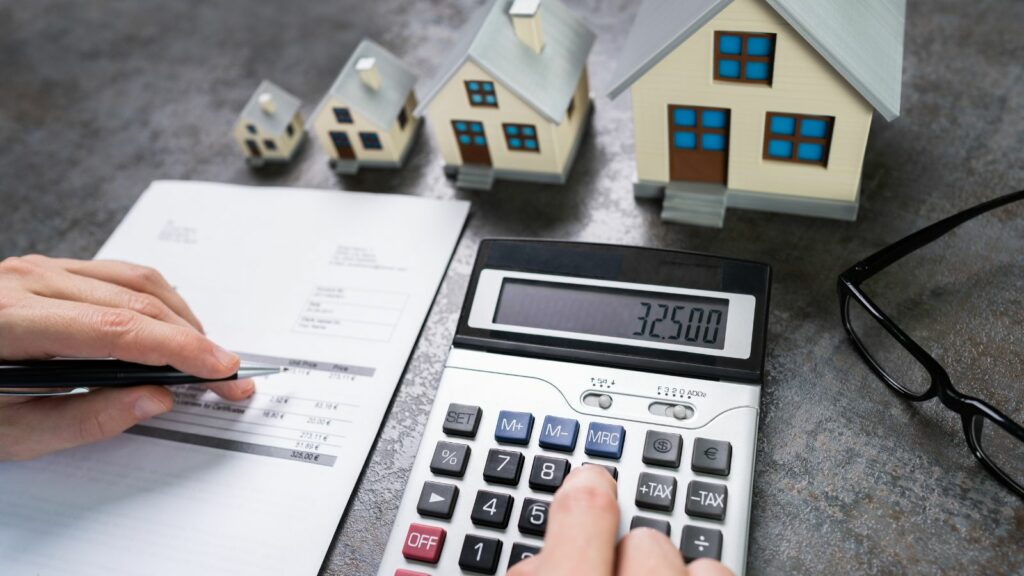When you buy a home, it’s important to remember that the costs don’t end with the purchase price. There are ongoing expenses to consider, such as mortgage payments, property taxes, homeowner’s insurance, and maintenance and repair costs. For best results, be prepared for all the costs associated with home-buying so you can budget efficiently and avoid any unpleasant surprises down the line.

Recurring Homeownership Costs to Consider
Owning a home can be a rewarding experience, but it also comes with many financial responsibilities. One of the most significant expenses is your monthly mortgage payment, which includes several components, such as principal, interest, taxes, and insurance (PITI). In addition, there are other recurring expenses such as property taxes, homeowner’s insurance, private mortgage insurance (PMI), homeowners association (HOA) fees, and home maintenance and repairs. It is crucial to understand the terms of your loan, account for these expenses, and budget accordingly to avoid financial stress.
Mortgage payments: Your monthly mortgage payment includes the principal, interest, taxes, and insurance (PITI) associated with your loan. Be sure to understand the terms of your loan and the impact of interest rates on your payments.
Property taxes: Property taxes are a recurring expense that varies depending on where you live. Be sure to budget for them and account for any potential increases.
Homeowner’s insurance: Homeowner’s insurance is a necessary expense that covers damage to your home from natural disasters, theft, and other events. Be sure to shop around for the best rates and coverage.
Private mortgage insurance (PMI): If you put down less than 20% on your home, you may be required to pay PMI. This additional monthly cost protects the lender if you default on your loan.
Homeowners Association (HOA) fees: If you live in a community with an HOA, you will be required to pay fees to cover maintenance and other expenses. Be sure to understand what these fees cover and how often they are due.
Home maintenance and repairs: Home maintenance and repairs can be costly, especially if you own an older home. It’s essential to budget for these expenses and have a plan for unexpected repairs.
Pre-Purchase Costs to Consider
Aside from the expenses of home ownership, there are also one-time out-of-pocket cash expenses to account for when determining your home-buying budget, including an earnest money deposit, your down payment, and closing costs.
Earnest Money Deposit: An earnest money deposit when buying a home is a payment made by a buyer to a seller in good faith as a show of commitment to purchase a property. It is usually a small percentage of the home’s purchase price, usually ranging from 1% to 3%, and stays in an escrow account until the completion of the sale.
Down payment: Your down payment is an expensive upfront cost ranging from 3% to 20% of the home’s purchase price, depending on your loan type. Be sure to understand the requirements for your loan and budget accordingly.
Closing costs: Closing costs can be several thousand dollars and include fees for appraisals, title searches, and other services. Be sure to understand these costs and negotiate with the seller if possible. These costs are generally between 2% and 6% of the sales price.
Additional Costs to Consider
Finally, you must figure in your moving costs, furnishings, and utilities.
Moving expenses: Moving expenses can be significant, especially if you are moving long-distance or have a lot of belongings. Be sure to get estimates from several moving companies and budget accordingly.
Furniture and home decor purchases: If you’re moving into a new home, you may need to purchase new furniture and home decor. Be sure to budget for these expenses and shop around for the best deals.
Utility bills: Utility bills can require deposits, including electricity, gas, water, and internet/cable. These deposits are often refundable after the first year, but you’ll need the cash on hand to initiate service in many cases.
Special Financing Options
If you’re a first-time homebuyer, many special financing options are available to help you afford the home of your dreams.
One popular option is to look into first-time homebuyer programs, which can provide financial assistance to help with down payments and closing costs. These programs often have minimum down payments as low as 3% to 5%, and some even require no down payment at all.
Additionally, many state and local governments offer first-come, first-served cash grants to first-time buyers, which you can use for mortgage closing costs, mortgage rate reductions, and down payments on a home.
Other government loan options worth exploring when you need a boost in qualifying for a mortgage include FHA loans and VA loans, which offer lower down payment options and more flexible credit requirements than conventional loans. It’s a good idea to research these programs and loans to determine which ones you may qualify for and which ones may be the best fit for your financial situation.
Conclusion
When buying a home, it’s important to be aware of the expenses associated with homeownership. In addition to the purchase price, there are ongoing expenses such as mortgage payments, property taxes, homeowner’s insurance, and maintenance and repair costs. Budgeting accordingly and accounting for all expenses is crucial to avoid financial stress and buyer’s remorse.
Pre-purchase costs such as earnest money deposits, down payments, and closing costs should also be considered, as well as moving expenses, furniture and home decor purchases, and utility bills.
For first-time homebuyers, there are special financing options available such as first-time homebuyer programs, cash grants, and government loan options, which can provide financial assistance to help with down payments and closing costs. Overall, being aware of these expenses and having a solid budget in place can make the home-buying process a smoother and more manageable experience.
Talk with a professional real estate agent today to learn more about the expenses you should consider when preparing to purchase a house so that you can budget accordingly and enjoy the home-buying experience without unnecessary stress or anxiety.


